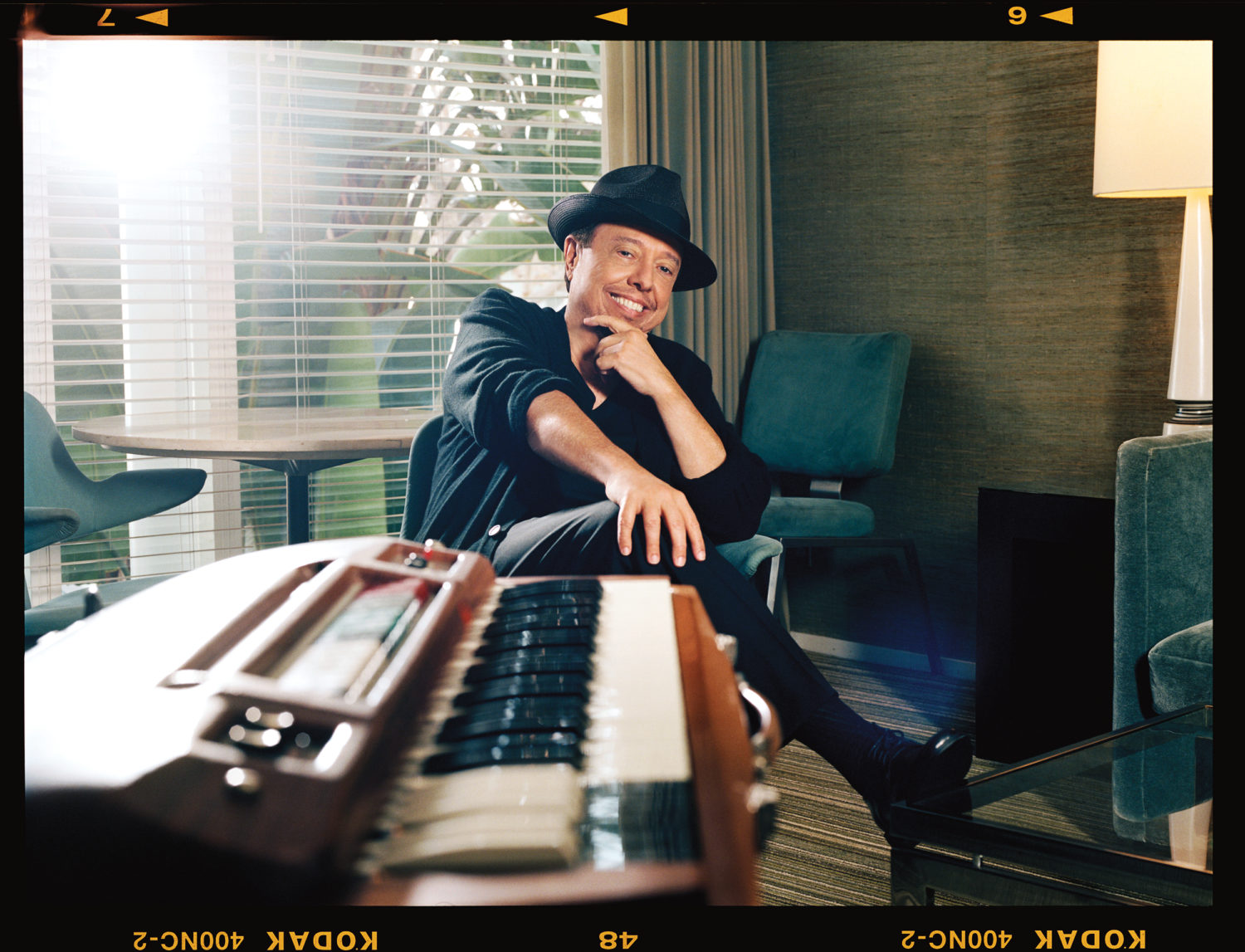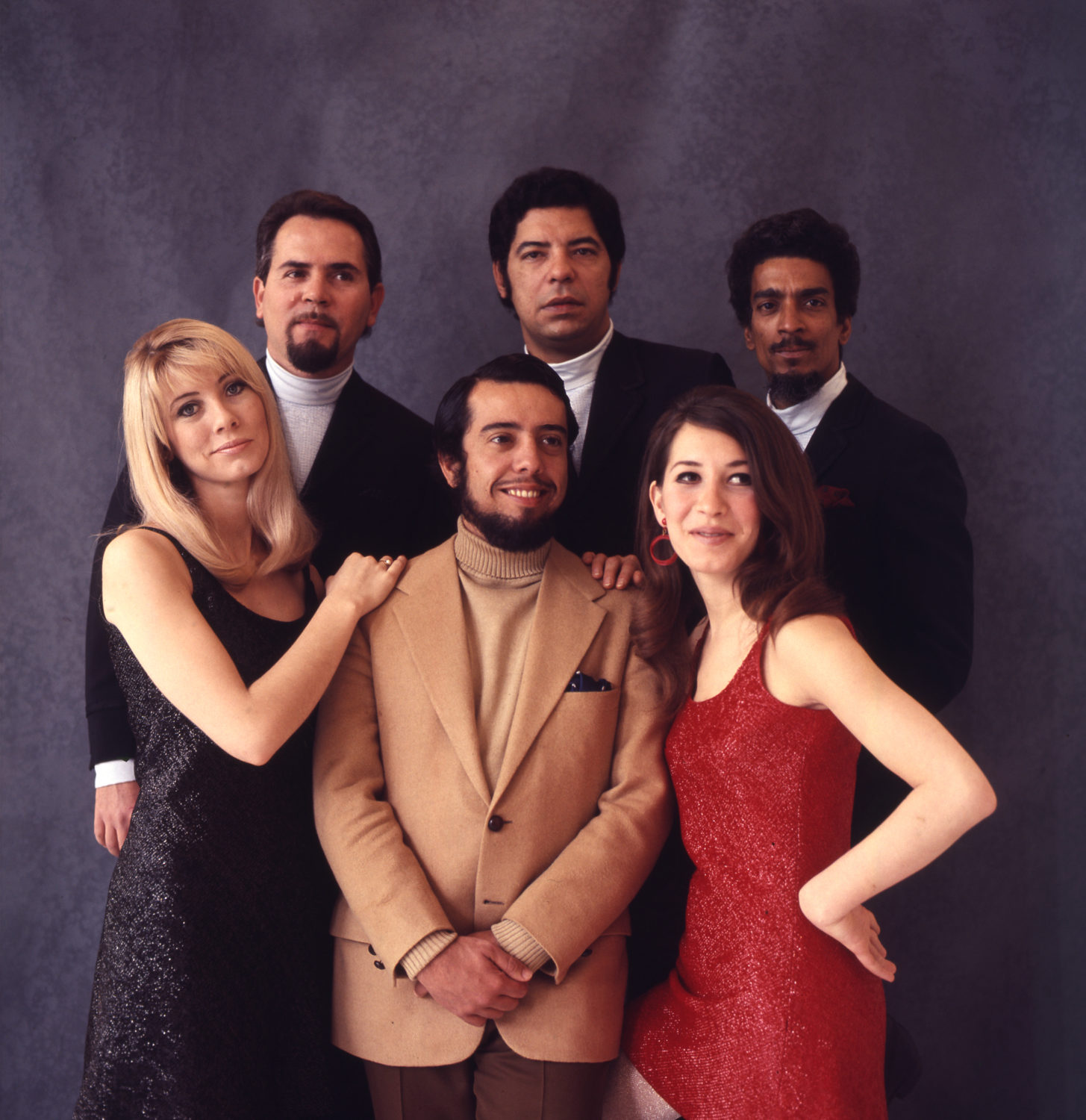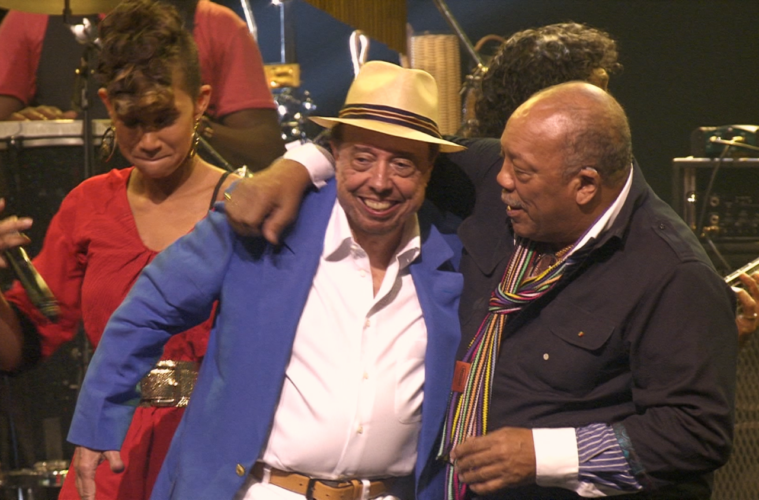An influential music figure gets his due this month on PBS, which airs the special Sergio Mendes & Friends: A Celebration, chronicling the life of the Brazilian music pioneer, throughout June. Featuring the documentary Sergio Mendes: In The Key Of Joy by director John Scheinfeld (The U.S. vs John Lennon), the presentation features commentary from Herb Alpert, Common, Quincy Jones, John Legend, will.i.am (who produced his comeback into the pop world called Timeless) and more.
Mendes, who was born in Niterói, Brazil in 1941, found his rhythm on the keys and in the New York music scene, first as a signee with his music trio to Capitol Records, and later Brasil 66 signed with A&M, where he re-defined the ‘60s Bossa Nova sound and popularized smooth jazz with a pop sensibility. Releasing 35 albums and scoring multiple hits like “Mas Que Nada,” “The Look of Love,” “Scarborough Fair,” “Night and Day,” and later, the soulful ballad “Never Gonna Let You Go,” Mendes has earned three Grammies and received an Oscar nod for his music in the animated film Rio.
His work has been used in countless films, adverts and TV programs; so much so that even younger music fans who might not know the artist by name usually have recognition of his work, both with his groups and as a solo artist and composer. His take on Brazilian music has become a global and cultural game-changer that continues to inspire and resonate to this day. With the PBS special debuting this weekend, L.A. Weekly spoke to the legend via Zoom from his home in Woodland Hills.

(Courtesy PBS)
LA WEEKLY: The movie is wonderful. How did it all come about?
SERGIO MENDES: Thank you. Yes, John Scheinfeld did a tremendous job. He’s a wonderful director and producer, and it was great working with him. The record company had this idea of doing a documentary about my life and they asked me what I thought. I thought that was great so they sent me a copy of the documentary that John did on Coltrane, and also Harry Nilsson, and I loved them. I said I want to meet him. So he came to the house, we met and I said let’s do it. Let’s go.
He’s a great storyteller, and clearly very musical. I think that you probably have to really have a strong appreciation for the music to tell this kind of story in the right way.
I met with him a couple of times here at the house and he lives here in LA, which makes life easier. I really enjoyed meeting him and we spoke a lot about my career, my music, my life… I didn’t see anything until the end. Not the interviews or anything, and so it was for me, a very emotional experience when I saw the final cut. He got some incredible archives from shows I’d done years and years ago. I think it’s very well put together.
The archival stuff was so fun. Really captured that time. Were there things that you forgot about, or that made an impression on you to see again?
Once I saw it I remembered most of the things, but I had forgotten a few, so it was great to see that great footage again. And also, you know, going back to where I grew up in Brazil. The apartment building where I used to live….all that was very, very moving for me.
So looking back at your career, the film shows both your influence and your resiliency in tough times. It really showed the ups and downs. That early live gig Brasil 66 had and how you got fired because the crowds didn’t quite get it. And yet, you went on to be so popular afterward. So can you talk a little bit about that?
Yeah, of course that was a downer. You know, I mean, somebody who hired you to play and then goes, here’s your money and thank you very much but we don’t want you. I said wow, this is the beginning of my career. The gig was in the Bahamas. But I told the members that we just have to rehearse and make this thing better and so we came back to the U.S. And right when we get back here, we start to rehearse, then A&M was interesred, so things started happening.
As they say, ‘when one door closes, another door opens.” Watching the story unfold, that gig in the Bahamas was surprising because you guys were already establishing your sound, and you sounded amazing. Why do you think it didn’t resonate at the time?
Well I think it was a combination of things. First of all, we hadn’t had the big hit yet. This is before “Mas Que Nada.” We didn’t have a record or something to promote and nobody knew about us. I mean after I recorded my first album, and had the big success with so many songs, then things were different.

Brasil 66 (Courtesy PBS)
How did Albert and Jerry hear about you? Were you playing out live a lot?
I was here in the L.A. studio of a friend of mine on Melrose. And in those days record companies used to come to visit to see and to hear new bands. A few record companies came to see us there and among them was Herb and Jerry. It was a perfect fit. They were just starting and they had great energy and I liked them a lot. We became good friends for life. It was just like—as I use the word many times in the documentary— serendipity.
I think so. Another part of the documentary showing the band’s evolution and how things maybe happen for a reason, was when you lost your original singer Lani Hall . She fell in love with Herb and left the band. That must have been hard because you had such a great chemistry with her singing.
Absolutely, we’re still very dear friends dear by the way. I speak once or twice a week with Herb and Lani. But you know, again, like you said one door closes and the other one opens. That’s when I met my wife who became the singer of the band.
It became a love story for all of you.
Sergio, what would you say looking back on your career and being a Latino in the US, about getting your music out there? Like what were some of the challenges that you faced? How did you overcome the cultural barriers and find success?
I think it comes down to the song at the end of the day. The power of the song, and the melody. We had a hit song in Portuguese, it was the first time ever that a song like that became a number one in the world, not only in the United States. I think a lot had to do with the arrangement and the uniqueness of the sound at the time.
It was very unique. Did you ever consider translating it or would that have been weird?
For that song, it would be such a corny thing. It wouldn’t work out. The song by the way is huge in Japan. The melody is really the catchy and people, they’ve taken it to the heart and they’ve embraced it. Some songs need English lyrics but not that one. Having English songs helped to make us even more international, though.
You are a role model for Latin people. How does that feel?
I never thought about it. I don’t know, am I?
You are! Your music brought a flavor of music to America that wasn’t there and it changed pop music. I think the documentary touches upon that and it’s huge. I think it will inspire musicians of all backgrounds because you always stayed true to who you are and you still made it within the industry.
Absolutely, yeah. I would say people should stay with your dream, embrace your dream and don’t stop. As I like to say, keep playing in the key of joy.
Sergio Mendes & Friends: A Celebration airs on PBS beginning Sat., June 5.
Advertising disclosure: We may receive compensation for some of the links in our stories. Thank you for supporting LA Weekly and our advertisers.

